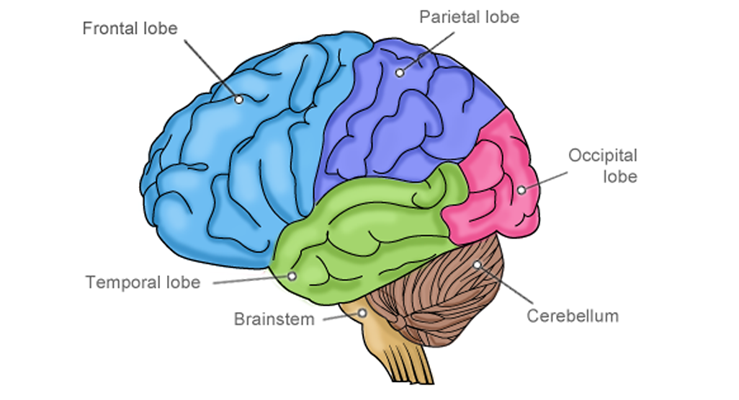Children’s brain development is a critical process that lays the foundation for their lifelong learning and behaviour. During this period, neural connections are formed, influencing cognitive, social, and emotional abilities.
The early years of a child’s life play a significant role in shaping their brain development. From birth to age five, the brain undergoes rapid growth, with the formation of billions of connections called synapses. These synapses are responsible for transmitting information and shaping the brain’s circuitry.
Stimulating environments, positive interactions, and engaging experiences are crucial for optimal brain development in children. These experiences help strengthen neural pathways and promote learning, language skills, problem-solving abilities, and emotional regulation. Understanding the importance of children’s brain development is vital for parents, caregivers, and educators. By providing nurturing and stimulating environments, we can support healthy brain development and set children on a path towards lifelong success.
The Magical Stages Of Brain Development In Children
Discover the enchanting phases of brain development in children; witness their minds flourish with curiosity and learning, as they embrace cognitive, emotional, and social milestones throughout their childhood journey.
During the early stages of a child’s life, their brain undergoes incredible growth and development. One of the key aspects of this development is the formation of early neural connections. These connections form the foundation for all future learning and development. As the child grows, their brain rapidly expands, with new connections being made at an astonishing rate. This period of rapid brain growth is a crucial time for language acquisition and cognitive development. Children are like sponges, absorbing new information and developing their language skills at an impressive pace.
Another important aspect of brain development in children is emotional development and self-regulation. During this stage, children learn to understand and regulate their emotions. They begin to develop empathy and a sense of self. This emotional development plays a significant role in their overall well-being and social interactions.
It is fascinating to witness the magical stages of brain development in children. From early neural connections and rapid brain growth to language acquisition, cognitive development, and emotional development, all these aspects shape the incredible journey of a child’s brain development.
Unlocking The True Potential: Nurturing Cognitive Abilities
Playtime isn’t just a leisure activity for children; it’s a crucial component of their brain development. Play plays an integral role in shaping cognitive skills by providing opportunities for learning and growth.
One of the primary benefits of play is enhancing problem-solving and critical thinking abilities. Through various games and activities, children learn to analyze situations, identify patterns, and come up with innovative solutions. Problem-solving and critical thinking skills acquired during play are essential for academic success and future career prospects.
In addition, play stimulates creativity and imaginative thinking. Kids engage in pretend play, creating their own narratives and scenarios. This imaginative play fosters creativity, allowing children to think outside the box and develop innovative ideas.
Empowering Emotional Intelligence: Harnessing Social Skills
Building empathy and fostering positive relationships: One crucial aspect of children’s brain development is the cultivation of emotional intelligence. An essential component of emotional intelligence is the ability to understand and share the feelings of others, commonly known as empathy. Developing empathy helps children form meaningful connections with others and promotes a sense of inclusivity and compassion. By encouraging activities such as role-playing, problem-solving exercises, and discussions revolving around understanding different perspectives, parents and educators can foster empathy and build strong interpersonal skills in children.
Promoting emotional self-regulation and resilience: Another key facet of children’s brain development is the promotion of emotional self-regulation and resilience. Teaching children how to recognize and manage their emotions effectively enables them to navigate challenging situations more effectively. This involves providing them with tools and strategies for managing stress, frustration, and anger. By encouraging healthy coping mechanisms such as deep breathing, and mindfulness exercises, and encouraging open dialogue about feelings, parents and educators can help children develop the necessary skills to regulate their emotions and display resilience in the face of adversity.
Encouraging effective communication and teamwork: Effective communication and teamwork skills are vital for a child’s overall growth and development. By fostering an environment that values open and honest communication, children can learn how to express their thoughts and feelings clearly and respectfully. Parents and educators can promote effective communication skills by encouraging active listening, providing constructive feedback, and creating opportunities for collaborative activities. These experiences help children develop the ability to work together, solve problems collectively, and contribute positively to group settings, ultimately enhancing their social skills and brain development.
Creating An Enriched Environment For Optimum Brain Development
Developing a rich and stimulating environment is crucial for optimal brain development in children. Nurturing their cognitive growth requires a holistic approach encompassing various aspects. One essential element is maintaining a nutritious diet. A proper intake of essential nutrients, vitamins, and minerals aids brain function and promotes healthy development. Encouraging regular physical exercise is another vital aspect. Engaging in physical activities not only improves physical health but also enhances cognitive abilities, including memory and attention. Furthermore, prioritizing quality sleep is imperative. Sufficient and undisturbed sleep supports brain health and facilitates learning and memory consolidation. Combining these factors creates an environment conducive to children’s brain development, allowing them to reach their full potential.

Credit: chalkboardpublishing.com
Frequently Asked Questions On Children’s Brain Development
At What Age Is A Child’s Brain Fully Developed?
A child’s brain is fully developed by the age of 25.
What Are The Stages Of A Child’s Brain Development?
Child’s brain development occurs in stages, beginning with basic sensory and motor skills. It then progresses to language, emotional and social development before reaching higher cognitive functions like problem-solving and critical thinking. These stages are crucial for a child’s overall growth and learning abilities.
What Are The 5 Stages Of Brain Development?
The 5 stages of brain development are prenatal, infancy, childhood, adolescence, and adulthood.
Conclusion
It is crucial to prioritize and support the healthy brain development of children. By understanding the various factors that influence their cognitive growth, such as nutrition, play, and education, we can promote their overall well-being. Providing stimulating environments, nurturing relationships, and fostering curiosity are effective ways to encourage optimal brain development in children.
Ultimately, investing in their early years will have long-lasting positive effects on their future cognitive abilities and overall success in life.










Be First to Comment